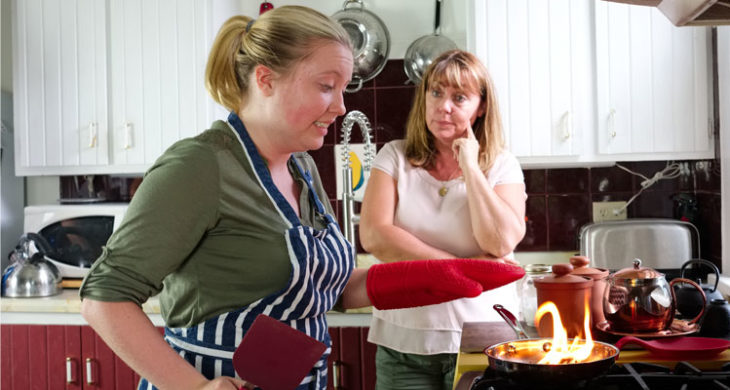When we think of home economics, some of us may have fond memories from high school of those haphazard woodshop creations or burned recipes in cooking class. Others may think of female students in the 1950s taking these classes in their poodle skirts, pigeonholed into domestic roles.
Home economics classes first began to emerge on the scene in the mid-1800s under the influence of Catharine Beecher, half-sister to the famous abolitionist Harriet Beecher Stowe. Beecher sought to apply scientific principles to domestic and family duties while dedicating her life to educational equality and access for women.
Beginning in the 60s and 70s, the women’s movement began to view home economics as preparedness for stereotyped domestic and maternal roles. Attempting to avoid this stigmatization, schools began systematically shying away from home economics classes. This movement away from home economics also increased as budget cuts and limitations began to hit schools hard, and these classes were some of the first to go.
Now, we are left with a generation of students not knowing basic life skills such as cooking, sewing, home repairs, finances, or car care and maintenance.
A study released by Acosta Sales & Marketing revealed that millennials lead other generations in percentages for consumers eating out, ordering delivery, or purchasing from the growing trend of “grocerants”—grocery stores doubling as restaurants. With cooking no longer being taught, younger generations are relying heavily on prepared food.
A professor at the University of Missouri, Pamela Norum, decided to research the lack of sewing and laundry skills in younger adults after her daughter asked if she had to take her pants to a tailor to sew on a button. Her study found that skills in sewing, hemming, button repair, and general laundry knowledge decreased with each generation—millennials being the weakest.
So, what is the answer? How do we unravel the hole left by home economics?
Norum stated that it is “going to be up to them” to figure out how to learn these necessary life skills. They will need to use their creativity to come up with how to get things done in different ways than previous generations.
Because of this noticeable deficit of basic life skills, many educators and social influencers have begun calling upon schools to reinstate classes reminiscent of previous home economics to better equip the upcoming generations. The American Association of Family and Consumer Sciences offers secondary and postsecondary education courses to help train students not only for career paths but for the skills they will use daily for the rest of their lives.
However, the problem that schools are finding with implementing these family and consumer sciences courses is that half of all states are having trouble finding teachers qualified enough to teach the classes.
This desperate need for learned life skills presents a priceless opportunity to create memories with your children.
For those parents with children old enough to begin learning these life skills, don’t leave it up to the schools to teach them. Start planning nights to cook with them. Share favorite family recipes. Spend time on a Saturday morning working on the car. As you begin preparing your tax returns, spend a few minutes with your child talking about budgets and bank accounts. Have them do a load of laundry or sew on a button. Hang a picture and plant a flower.
Some of these you can begin teaching at very young ages, while others may be final crash courses before your child leaves for college. If you are fortunate enough to still have grandparents able to teach them, have your kids visit with them and learn how things were done when they were the same age.
Creating these teachable moments with your children will not only equip them with what they need to function in life on a daily basis but will also gift them with memories they will cherish the rest of their lives.
Cooking and cleaning is not just for poodle skirts, and it is important to not be so leery of stereotypes that we neglect basic life skills. Both women and men can be successful inside and outside the home, but they will need the skills necessary in order to do so.
,










